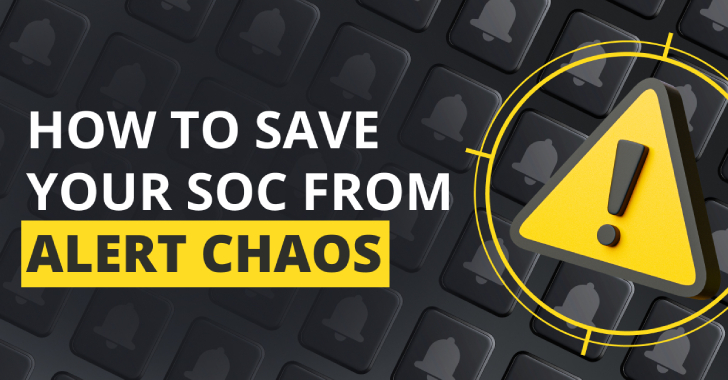
The Future of PCI DSS Compliance in Blockchain Transactions
Blockchain technology has been a game-changer in various industries, offering transparency, security, and decentralization. It’s not just about cryptocurrencies; blockchain has found applications in supply chain management, healthcare, finance, and more. However, as blockchain continues to evolve and grow, it presents new challenges for compliance with existing regulations, including the Payment Card Industry Data Security Standard (PCI DSS). In this article, we explore the intersection of blockchain transactions and PCI DSS compliance and the future of this relationship.
Understanding PCI DSS Compliance
PCI DSS, which stands for Payment Card Industry Data Security Standard, is a set of security standards designed to ensure that all companies that accept, process, store, or transmit credit card information maintain a secure environment. These standards are essential for safeguarding sensitive financial data and preventing data breaches.
PCI DSS consists of a set of requirements grouped into six main categories:
Build and Maintain a Secure Network and Systems
Protect Cardholder Data
Maintain a Vulnerability Management Program
Implement Strong Access Control Measures
Regularly Monitor and Test Networks
Maintain an Information Security Policy
Companies that handle credit card information are required to adhere to these standards to protect consumers from fraud and data breaches.
Blockchain and PCI DSS Compliance: A Complex Relationship
The blockchain’s decentralized and immutable nature poses both challenges and opportunities for PCI DSS compliance.
Challenges:
- Data Privacy: Blockchain is designed for transparency, which can be at odds with the need to protect cardholder data. Transactions on public blockchains are visible to anyone, and while they don’t typically include full credit card numbers, they may contain metadata that could be used for malicious purposes.
- Data Retention: Traditional PCI DSS compliance includes requirements for data retention and disposal. In a blockchain, data is immutable, making it challenging to adhere to these requirements.
- Third-party Involvement: Many blockchain networks involve multiple parties, including miners and node operators. This distributed nature can complicate the enforcement of PCI DSS compliance across the network.
Opportunities:
- Enhanced Security: Blockchain’s cryptographic techniques provide robust security measures that can help protect cardholder data. Transactions are securely recorded, and unauthorized alterations are nearly impossible.
- Reduced Fraud: The transparency of blockchain transactions can make it easier to detect and prevent fraudulent activities.
- Streamlined Auditing: The transparency and immutability of blockchain data can simplify the auditing process for compliance purposes.
The Future of PCI DSS Compliance in Blockchain Transactions
As blockchain technology matures and continues to disrupt various industries, it’s essential to consider the future of PCI DSS compliance in the context of blockchain transactions:
- Privacy-Focused Blockchains: One solution to address the privacy challenge is the development of privacy-focused blockchains. These blockchains utilize advanced cryptographic techniques to ensure data privacy while still benefiting from the security and transparency of blockchain technology. Such blockchains could enable secure payment processing while maintaining PCI DSS compliance.
- Smart Contracts: Smart contracts, self-executing contracts with the terms of the agreement directly written into code, can automate compliance checks. For example, a smart contract could verify that a transaction adheres to PCI DSS standards before allowing it to proceed.
- Tokenization: Tokenization, the process of replacing sensitive data with unique tokens, can be integrated into blockchain transactions. This approach ensures that the actual cardholder data is stored securely off-chain, reducing the risk associated with data exposure on the blockchain.
- Regulatory Adaptation: Regulatory bodies may need to adapt PCI DSS standards to accommodate blockchain technology. This could involve creating specific guidelines for blockchain transactions, taking into account their unique characteristics.
- Hybrid Solutions: A hybrid approach that combines the strengths of blockchain and traditional payment processing systems may become more common. This approach would allow for the utilization of blockchain’s security and transparency benefits while addressing PCI DSS compliance concerns through traditional means.
- Education and Collaboration: Stakeholders, including blockchain developers, businesses, and regulatory bodies, must collaborate and educate each other about the challenges and opportunities of blockchain technology in the context of PCI DSS compliance. This will lead to the development of more effective compliance solutions.
Challenges and Considerations
While the future of PCI DSS compliance in blockchain transactions holds promise, several challenges and considerations remain:
- Interoperability: Ensuring that various blockchains and payment systems can work seamlessly together while maintaining compliance standards will be a significant challenge.
- Regulatory Clarity: Regulatory bodies worldwide must provide clear and consistent guidelines for blockchain-based payment systems to promote compliance and innovation.
- Security: As blockchain technology evolves, so do the techniques and tools used by malicious actors. Maintaining security while adhering to compliance standards is an ongoing challenge.
- Scalability: As blockchain networks grow, scalability becomes a concern. Transaction speed and capacity must be sufficient to handle a large number of transactions while maintaining compliance.
- User Education: Users must be educated on the unique security features and risks associated with blockchain-based payment systems to protect their financial data effectively.
Conclusion
The future of PCI DSS compliance in blockchain transactions is a complex and evolving landscape. While blockchain offers significant benefits in terms of security and transparency, it also presents challenges in maintaining data privacy and adhering to traditional compliance standards. As blockchain technology continues to mature, stakeholders must work together to develop innovative solutions that balance the benefits of blockchain with the need to protect cardholder data and comply with PCI DSS requirements. Ultimately, the future of PCI DSS compliance in blockchain transactions will depend on the ability to adapt and integrate blockchain securely into the existing financial ecosystem.
Contact Cyber Defense Advisors to learn more about our PCI DSS Compliance solutions.





